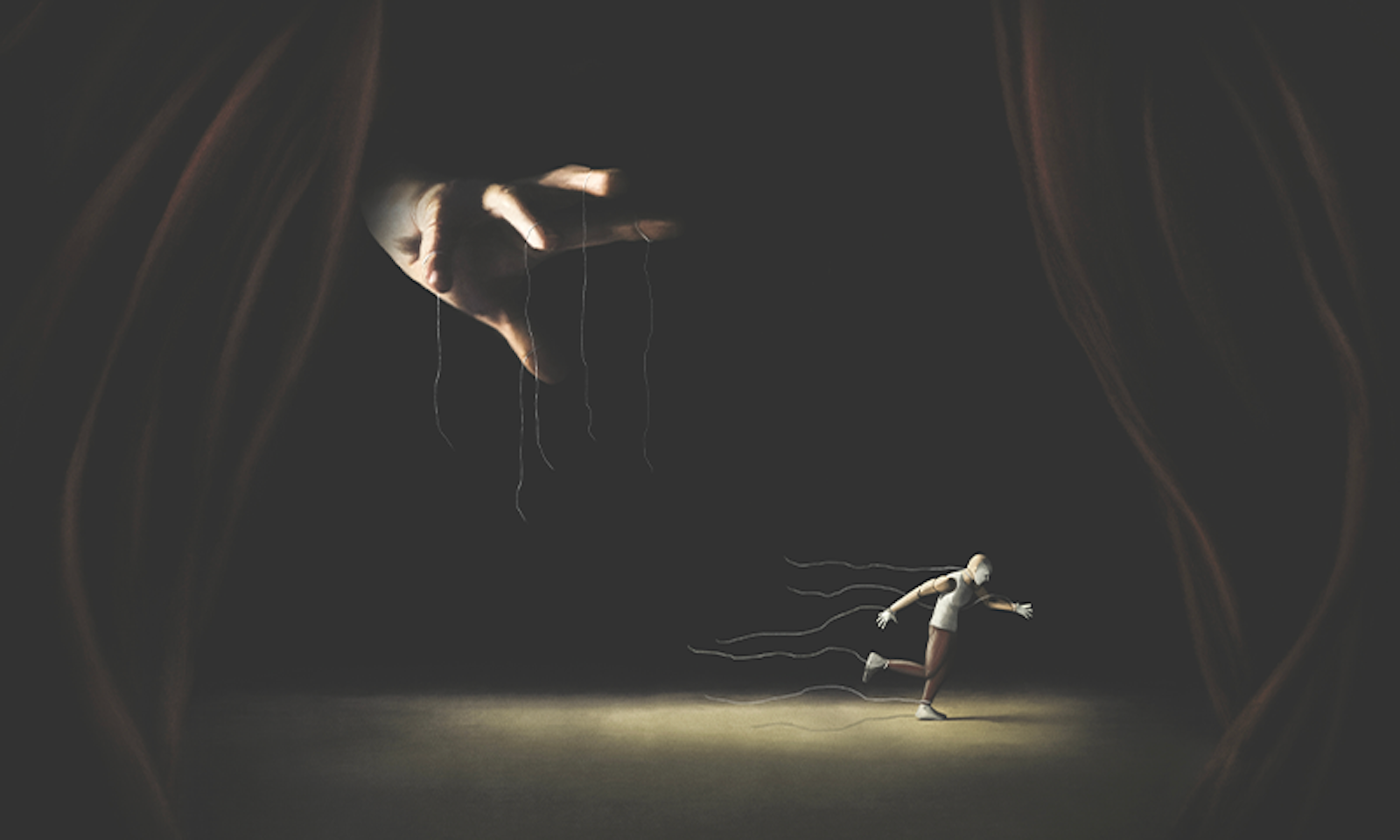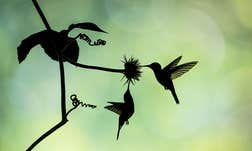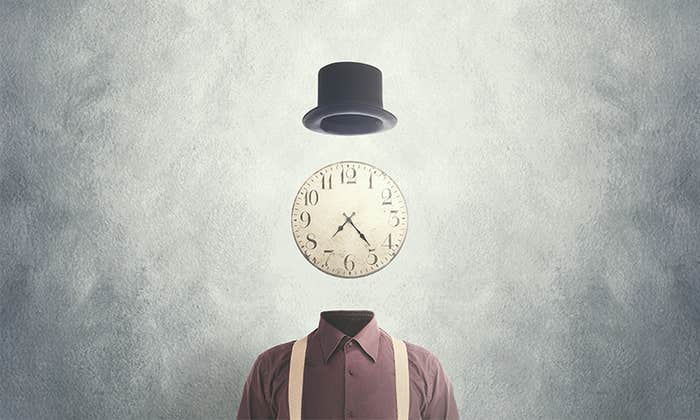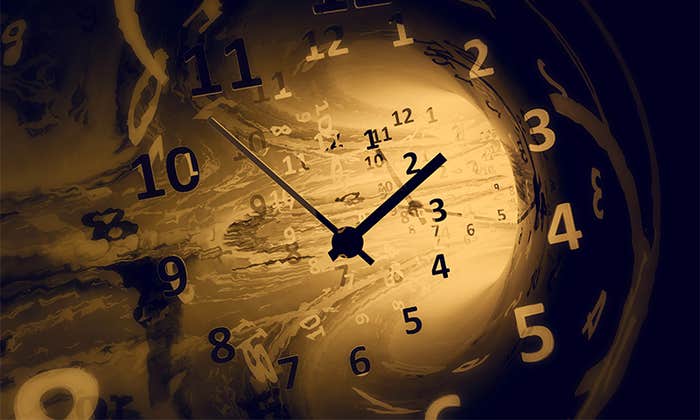You’re thirsty so you reach for a glass of water. It’s either a freely chosen action or the inevitable result of the laws of nature, depending on who you ask. Do we have free will? The question is ancient—and vexing. Everyone seems to have pondered it, and many seem quite certain of the answer, which is typically either “yes” or “absolutely not.”
One scientist in the “absolutely not” camp is Robert Sapolsky. In his new book, Determined: A Science of Life Without Free Will, the primatologist and Stanford professor of neurology spells out why we can’t possibly have free will. Why do we behave one way and not another? Why do we choose Brand A over Brand B, or vote for Candidate X over Candidate Y? Not because we have free will, but because every act and thought are the product of “cumulative biological and environmental luck.”
Sapolsky tells readers that the “biology over which you had no control, interacting with the environment over which you had no control, made you you.” That is to say, “everything in your childhood, starting with how you were mothered within minutes of birth, was influenced by culture, which means as well by the centuries of ecological factors that influenced what kind of culture your ancestors invented, and by the evolutionary pressures that molded the species you belong to.”
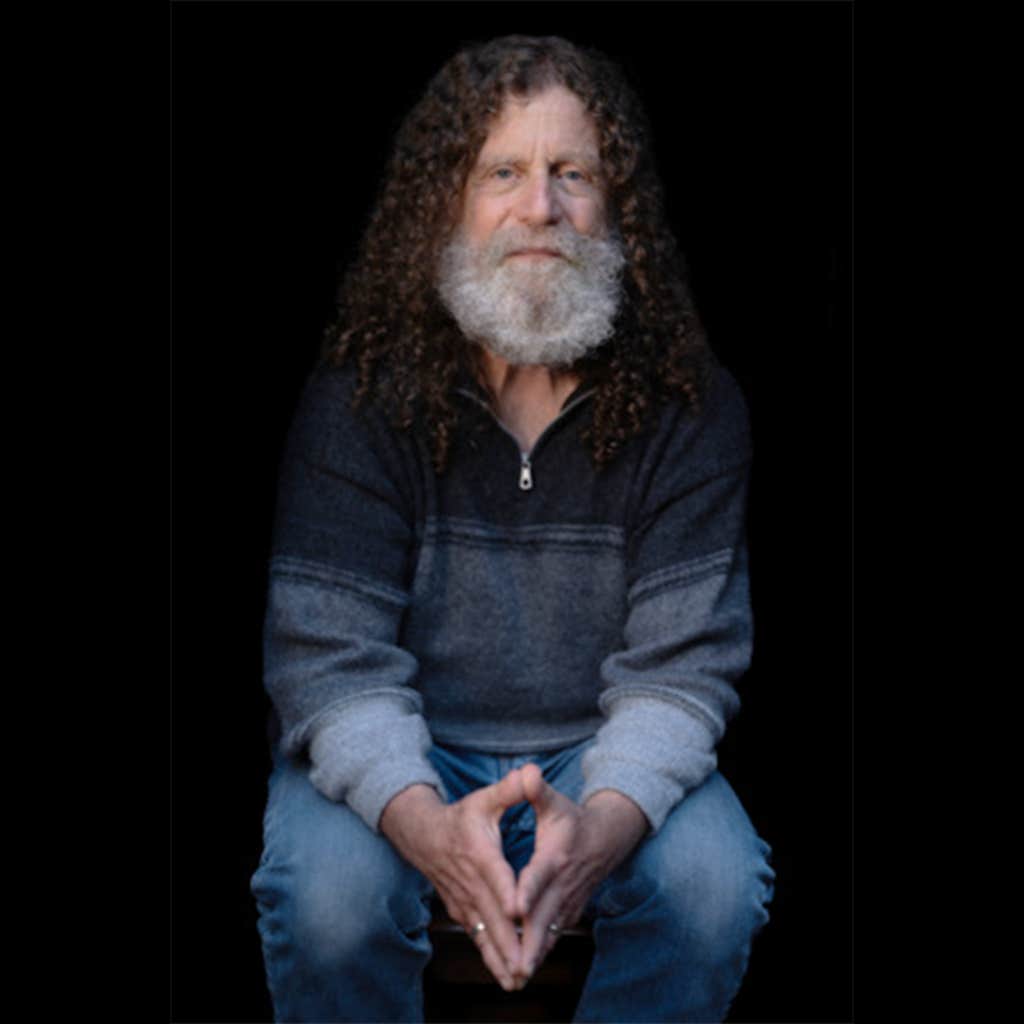
Sapolsky brings the same combination of earthy directness and literary flourish that marked his earlier books, including Why Zebras Don’t Get Ulcers, about the biology of stress, to this latest work. To summarize his point of view in Determined, he writes, “Or as Maria sings in The Sound of Music, ‘Nothing comes from nothing, nothing ever could.’”
The affable, bushy-bearded Sapolsky is now in his mid 60s. During our recent interview over Zoom, I was on the lookout for any inconsistency; anything that might suggest that deep down he admits we really do make decisions, as many of us surely feel. But he was prepared and stuck to his guns.
I had no issue with the first part of his argument—that cultural, genetic, and environmental factors influence our lives, and nudge us in certain directions. But how could those factors dictate what we say or do in each moment? He turned the question back on me.
“Why do you value that question?” he said. “Why did you wind up being a person who would be interviewing somebody about this subject? That wouldn’t have happened, for instance, if you had been raised with intestinal parasites in the middle of Niger.”
Your life is nothing but that: everything that came before.
To most people, Sapolsky said, free will is apparent in real time, for every action you perform. “You ask, ‘Did you intend to do it? Did you realize you could have done something else? That you had options?’ Most people’s intuitive sense is the answers are yes, and so you have demonstrated free will. But that’s like trying to evaluate a movie by only seeing the last three minutes of it. When you ask, ‘Where did intent come from?’, everything from one second to a million years before comes into play. That leads inevitably to the conclusion that there’s no free will. Because no matter how much you try, you can’t intend to intend something. You can’t will yourself to have willpower. You can’t think of what you’re going to think of next. It’s simply not possible.”
The way Sapolsky sees it, you can’t escape the biological and cultural forces and environmental factors that preceded you and shaped you. “There’s not a crack anywhere in there to shoehorn in free will,” he said. “When you look at every contemporary argument for free will that’s not invoking God or fairy dust or something, at some point, one must assume a step that bypasses the antecedent causes. But that violates the laws of how neurons work, atoms work, and universes work. Your life is nothing but that: everything that came before.”
Many scientists and philosophers beg to differ. Prominent among them is Kevin Mitchell, a neuroscientist at Trinity College in Dublin. In his new book, Free Agents: How Evolution Gave Us Free Will, Mitchell argues that although we’re shaped by our biology, it’s that very biology that made us, over the course of billions of years of evolution, into free agents. Even the earliest and most primitive creatures had some capacity to control their destinies. When a single-celled organism moves toward a food source, or away from danger, it has entered, however meekly, into a new world of agency and freedom. Simple organisms, Mitchell writes, “infer what is out in the world” and “make holistic decisions to adapt their internal dynamics and select appropriate actions.” He adds: “This represents a wholly different type of causation from anything seen before in the universe.”
A dozen years younger than Sapolsky, and with a less voluminous beard, Mitchell was born near Philadelphia but grew up in Ireland; he then returned to the United States for grad school and a postdoc, before heading back to Dublin. That accounts for his “all over the place” accent, he told me.
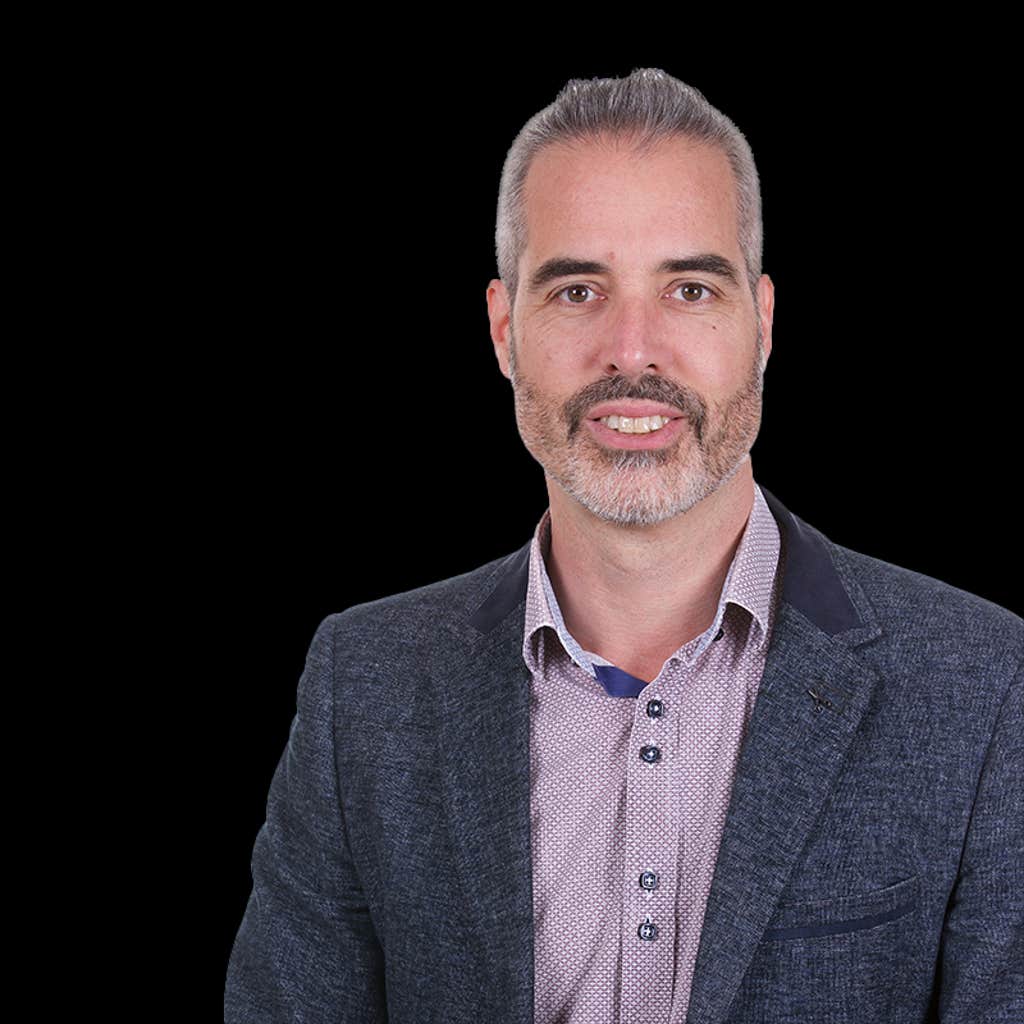
In a universe where the mindless laws of nature push bits of matter around, it might indeed seem miraculous that free will—agency—can emerge. As I made my way through Free Agents, I thought of a New Yorker cartoon where two scientists are at a blackboard filled with equations. In the middle, instead of an equation, the first scientist has written, “Then a miracle occurs.” The second guy says to him, “I think you should be more explicit here in step two.”
But emerge it does, according to Mitchell, and he’s adamant that there is nothing miraculous about it. Rather, in living creatures like us, freedom is enabled by the underlying biology.
But couldn’t biology itself be beyond our control? In their books, both Sapolsky and Mitchell refer to the work of neuroscientist Benjamin Libet. In the 1980s, Libet conducted a series of experiments that appeared to show that electrical activity in the brain could be detected several hundred milliseconds before the subject became aware of making a decision—suggesting, to some, that the brain itself must be doing the “deciding,” with the conscious mind following along after the fact. Libet’s experiments were, and remain, controversial; even so, they left many people wondering if free will must be an illusion.
Mitchell doesn’t buy it. Yes, there are physical and chemical processes operating within the brain—how could there not be?—but that does nothing to take away our freedom, he says. “It comes down to the idea that if we can find the machinery inside the brain that is active when we’re making a decision, then maybe decision making just is being done causally by that machinery,” he told me. “I don’t think that view is right, because I think you can have a completely different view, which is, yes, there is some machinery that we use to make decisions; but it’s machinery we use to make decisions. We’re making the decisions.”
For Mitchell, decision-making did not start with human beings. Rather, it can be traced back to the first simple organisms that flourished hundreds of millions or even billions of years ago. “I wanted to take an evolutionary approach to this problem,” he said.
This represents a wholly different type of causation.
Evolution, Mitchell said, favors organisms that have some ability to make their way in the world. “They need to know what’s out in the world, and what to do about it.” Creatures evolved the ability to sense, and the ability to act, based on those sensations. They were evaluating (in some primitive manner) which action was likely to prolong their survival. “Even bacteria do this,” Mitchell said. Humans merely do this in a more sophisticated manner.
“We see what’s out in the world, gauge our internal state—bacteria do that too—and, given those things, given my beliefs about the world, and my own state at the moment, and my goals, we ask, ‘What should I do? What’s my range of options? How can I choose one of them and inhibit all the others?’”
Over the course of evolution, creatures with more sophisticated decision-making abilities appeared. “Those capacities got more elaborate, and more sophisticated, which led to organisms with greater and greater agency, with more control,” Mitchell said. “They have a greater range of possible actions; they have more flexible behavior.”
As creatures evolved more sophisticated ways to respond to their environments, they began to plan over longer time-scales. “They have a cognitive horizon that gets broader and broader through evolution,” Mitchell said. “And that means that they have greater causal autonomy. They’re not pushed around by every immediate thing in the environment. They can think about things that haven’t happened yet. And they can direct their actions toward things in the future, sometimes, for us, decades in the future.”
No magic, no miracles—just a capacity for decision making passed down to us over the eons from much simpler creatures, thanks to natural selection.
What’s fascinating is Sapolsky and Mitchell have dived into essentially the same scientific and philosophical literature about free will and yet surfaced with opposing conclusions. Can one be declared more right than the other?
To my mind, Mitchell seems to be on the right track. We really do make decisions, and that ability to make decisions has evolved over the eons. Simple creatures make simple decisions (“a possible food source—must move in that direction!”) and complex creatures make complex decisions (“I don’t like the candidate’s flat-tax proposal, but I like where he stands on offshore wind energy”). A determinist might insist that whatever we do, we do because of what came before. For simple creatures, that’s a fair position. A paramecium’s “decisions” happen more or less on autopilot. But for complex creatures like us, our actions depend on conscious decisions; for Mitchell, we are in the driver’s seat.
Mitchell’s view finds support in the work of physicist Jenann Ismael of Johns Hopkins University. Physicists, of course, have long debated how the laws of nature work, and whether those laws, right down to the behavior of elementary particles, do or do not allow for free will. In her 2016 book, How Physics Makes Us Free, Ismael lays out a position broadly aligned with Mitchell’s. Yes, the past paves the way for the present, which in turn shapes the future—but humans are not mere bystanders in this process. “It’s me that gets to decide, in the here and now, how the past bears on the future,” she told me in an interview.
Ismael agrees that we are influenced by what has come before—but as she sees it, those experiences inform rather than constrain our decisions. “From the noisy accidents of my life, I’ve extracted hopes, dreams, priorities, and visions,” she said. “When I’m deciding what to do, I sort through those things and make decisions about which of those get to bear on the future.”
Free will is the ultimate philosophical whack-a-mole.
And yet some of Sapolsky’s arguments are also convincing. He, too, has physicists on his side. In her 2022 book Existential Physics, physicist Sabine Hossenfelder writes that the idea of free will is incoherent. “For your will to be free, it shouldn’t be caused by anything else. But if it wasn’t caused by anything—if it’s an ‘uncaused cause,’ as Friedrich Nietzsche put it—then it wasn’t caused by you, regardless of just what you mean by you. As Nietzsche summed it up, it’s ‘the best self-contradiction that has been conceived so far.’ I’m with Nietzsche.”
For Sapolsky, recognizing that individuals are shaped by their past offers a blueprint for a more just society. Sapolsky believes we shouldn’t praise people for accomplishments they achieved largely because of a string of advantages that helped them throughout their lives; and he argues—correctly, I would say—that it’s wrong to condemn those who are struggling, merely because of the many disadvantages they have faced.
Consider a neurosurgeon and a criminal. The neurosurgeon “is not a better human because circumstances produced someone with the capacity to be a competent neurosurgeon,” Sapolsky told me. “And the other person is not a worse human because circumstances produced someone who is going to be violently impulsive in certain circumstances.”
At the same time, I can’t help wondering: If individuals don’t have the freedom to choose, how can courts or legislatures or whole societies have it? If freedom is an illusion, it might seem that an idea like “advocating for judicial reform” is rendered meaningless, too. How can one do anything other than what we’re supposedly determined to do? In Sapolsky’s view, although we can’t change the world, we can be changed by the world.
“Things change enormously!” Sapolsky said. “We don’t keep slaves anymore. We put on a sweater today because it’s cooler than it was yesterday. Someone who used to be a white supremacist now regrets it and works for tolerance. We get gummed up thinking we’re seeing free will. We have this incorrect belief that we have chosen to change ourselves. The white supremacist didn’t wake up one day and say, ‘Hey, it’s about time I stopped being a white supremacist.’ He was changed by circumstances.”
So how did these two very clever scholars end up with such different views? I think the answer is they targeted different facets of the free will puzzle. Sapolsky is worried we overestimate how much freedom we have by failing to take into account the biological, sociological, and environmental forces that have made us who we are. And he’s right: We should take those forces into account.
But he may have pushed the argument to the extreme, imagining that these restrictions on free will leave no room for any freedom at all. Sure, the fact that my dad loved playing folk songs on the piano when I was growing up probably increased the odds that I’d enjoy “Hey Jude” as an adult—but did my past really dictate, down to the second, when I might reach for that glass of water?
Mitchell, meanwhile, is focused on “rescuing” free will from a seemingly deterministic universe. This rescue operation (which gets bogged down in physics) is not necessary; philosophers have long argued that we can have the sort of freedom that matters regardless of what our atoms and molecules are doing. At the end of the day, one can’t pick a winner between Sapolsky and Mitchell any more than we can pick a winner between the New York Mets and the New York Rangers—they’re not playing the same game.
Even though Sapolsky and Mitchell cover a lot of ground, questions remain. One might wonder how to quantify those biological and cultural forces that anchor Sapolsky’s thesis. How might one prove that they allow for no freedom at all? And for Mitchell, who struggles to reconcile the workings of complex creatures such as humans with the underlying physics: How, exactly, do things like minds and agency arise from inanimate matter?
These two books show just how wide the problem of free will is. And because the problem can be approached in so many ways, we can be sure it’s not going away anytime soon. As Ismael told a lecture audience in Toronto recently, the puzzle of free will is the ultimate philosophical whack-a-mole.
“When you tease out one thread of argument that’s supposed to lead to the conclusion that there is no free will … people say ‘No, no, that’s not what I meant by free will,’ or, ‘the problem’s not over there, it’s over here,” she told me. “And they give you a different argument, or they give you a different conception of free will. So every time you nail down one of them, you get something else coming up where people say, ‘no, no, the real argument is over here.’” ![]()
Lead image: fran_kie / Shutterstock
Listen to Dan Falk explore the problem of free will in the audio feature: “The Puzzle of Free Will.”















